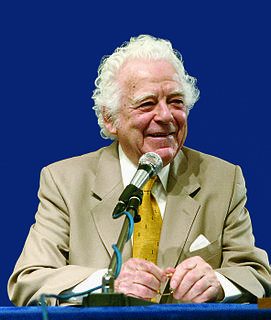A Quote by Paramahansa Yogananda
An adept of Kriya Yoga conquers death by taking the soul beyond identification with the physical body, consciously and at will; and then returning to the consciousness of the mortal form again. By this process, he experiences the body as merely the material dwelling place of the soul. He can remain therein as long as he wants; and after that body has fulfilled its usefulness, he can quit it at will without suffering physical pain or mental pain due to attachment, and enter his omnipresent home in God.
Quote Topics
Adept
After
Again
Attachment
Beyond
Body
Conquers
Consciousness
Death
Due
Dwelling
Dwelling Place
Enter
Experiences
Form
Fulfilled
God
His
Home
Identification
Long
Material
Mental
Mental Pain
Merely
Mortal
Omnipresent
Pain
Physical
Physical Body
Physical Pain
Place
Process
Quit
Remain
Returning
Soul
Suffering
Taking
Then
Usefulness
Wants
Will
Without
Yoga
Related Quotes
All of the pleasures of this present physical life can be continued into the next life as well, since we will have a body which is similar to our present physical body, but so much more glorious and wonderful and supernatural. We will be able to eat, drink, be merry and have fun without ever suffering pain or sickness or weariness or death.
We are individualized aspects of that oversoul, and the individualized soul - yours and mine and everyone else's on the planet - incarnates over and over and over again in a physical body, emotional astral body and mental body. These three bodies are temporary bodies that the soul creates and uses for a given time, long or short.
The Soul is a fact, but it is not physical. ... Survivors of near-death experiences attest that some part of them apparently detaches from their physical bodies following the death of the body, but while that is proof of the soul for them, it does not prove it to us. The Soul is like divine music that only God can hear; it is the force of endless resurrection; the soul is like a fire that never goes out.
At physical death man loses his consciousness of the flesh and becomes conscious of his astral body in the astral world. Thus physical death is astral birth. Later, he passes from the consciousness of luminous astral birth to the consciousness of dark astral death and awakens in a new physical body. Thus astral death is physical birth. These recurrent cycles of physical and astral encasements are the ineluctable destiny of all unenlightened men.
Pain, I came to feel, might well prove to be the sole proof of the persistence of consciousness within the flesh, the sole physical expression of consciousness. As my body acquired muscle, and in turn strength, there was gradually born within me a tendency towards the positive acceptance of pain, and my interest in physical suffering deepened.
When thou diest, thy soul will be tormented alone; that will be a hell for it, but at the day of judgment they body will join thy soul, and then thou wilt have twin hells, thy soul sweating drops of blood, and thy body suffused with agony. In fire exactly like that which we have on earth thy body will lie, asbestos-like, forever unconsumed, all they veins roads for the feet of pain to travel on, every nerve a string on which the devil shall forever play his diabolical tune of 'Hell's Unutterable Lament'.
It is God's earth out of which man is taken. From it he has his body. His body belongs to his essential being. Man's body is not his prison, his shell his exterior, but man himself. Man does not "have" a body; he does not "have" a soul; rather he "is" body and soul. Man in the beginning is really his body. He is one. He is his body, as Christ is completely his body, as the Church is the body of Christ
Think, "I am beyond the body. This body is just a water bubble. I am beyond the mind. This mind is just a mad monkey. I am the Atma. I and God are one. Before this body was formed I was there. After this body leaves I am there. Without this body I am still there. I am omnipresent. I am all." To reach this truth you have to do some spiritual practice. You have to inquire, "What is God? Who is God? Who am I?" Jesus spent twelve years in the desert; then he realized. You must also do some Sadhana.
The reflection, the verisimilitude, of life that shines in the fleshly cells from the soul source is the only cause of man's attachment to his body; obviously he would not pay solicitous homage to a clod of clay. A human being falsely identifies himself with his physical form because the life currents from the soul are breath-conveyed into the flesh with such intense power that man mistakes the effect for a cause, and idolatrously imagines the body to have life of its own.
The impious soul, however, punishes itself by seeking a human body to enter into, for no other body can receive a human soul; it cannot enter the body of an animal devoid of reason. Divine law preserves the human soul from such infamy... The soul passeth from form to form; and the mansions of her pilgrimage are manifold. Thou puttest off thy bodies as raiment; and as vesture dost thou fold them up. Thou art from old, O Soul of Man; yea, thou art from everlasting.





































